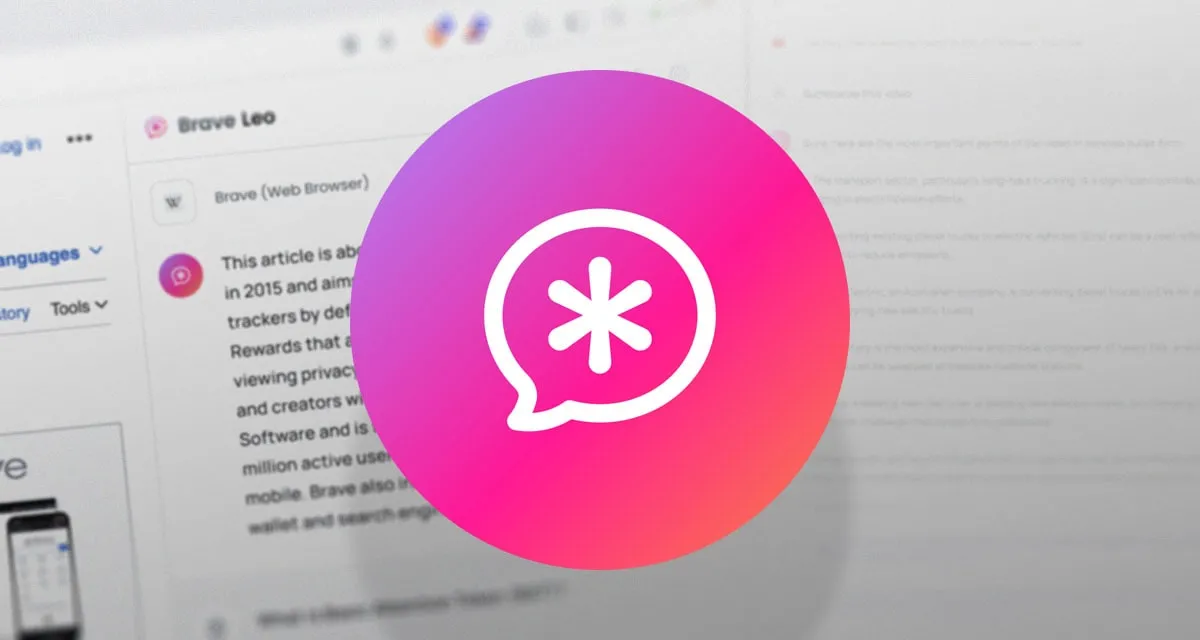 AI
AI
 AI
AI
 AI
AI
Brave, a web browser that prioritizes privacy, announced on Thursday that Leo, its built-in AI assistant, is now available in its latest desktop version.
Using Leo, users can receive real-time summaries of webpages and videos, the assistant can answer questions about web pages, and generate new content. The AI can understand the context of the pages the user has been surfing to translate, analyze, rewrite and assist with research.
“It is increasingly common today to use AI to ask questions and get assistance,” said Brian Bondy, co-founder and chief technology officer of Brave. “AI can be a powerful tool but it can also present growing concerns for data privacy and there’s a need for a privacy-first solution.”
With the launch of Leo, Brave is amping up the competition among browsers to bring AI capabilities directly into the web surfing experience. Microsoft Corp. added its AI Copilot assistant to the Edge browser in November, which provides access to OpenAI LP’s powerful GPT-4. This makes it behave exactly like the company’s Bing Chat search chatbot.
The basic features of Leo aren’t too different from both Bing Chat and Google LLC’s Bard chatbot. Under the hood, Brave said, the standard version Leo uses Meta Platform Inc.’s Llama 2 large language model and is free to use. For those users who want access to a different model, the company also introduced Leo Premium, a $15 monthly subscription that provides access to Anthropic PBC’s Claude Instant chatbot.
Claude Instant is a fast and light model that provides quick answers with high-quality reasoning, coding capabilities and multilingual capabilities. The company said that additional models will become available to premium users. Other perks will include access to higher rate limits, priority queuing, higher quality conversations and early access to improvements.
“Whether Brave users are analyzing text, editing documents, or writing code, they can now benefit from having personalized help from Claude at any time,” said Matt Bell, head of product research at Anthropic. “This integration unlocks the potential for AI to enhance people’s browsing and productivity in an intuitive, contextual way.”
As a company focused on privacy, Brave stressed that Leo’s activity is dedicated to user safety and anonymity. Measures taken to ensure privacy include the use of reverse proxies that anonymize server actions so user addresses cannot be linked, it discards responses so that conversations don’t persist, and it does not require logins for access. Subscriptions are validated with tokens that don’t link to user accounts:, meaning that Brave cannot connect purchase details to AI conversation activity.
Users can trigger the new AI experience in the Brave desktop browser by asking a question in the address bar and clicking an icon that looks like a talk bubble with an asterisk in it. Alternatively, users can summon the chatbot by clicking a similar talk bubble within the Brave sidebar to activate the chatbot sidebar.
Brave said Leo is coming to the desktop browser in a phased rollout over the next few days. The new AI assistant will also become available on mobile for Android and iOS devices in the coming months.
THANK YOU